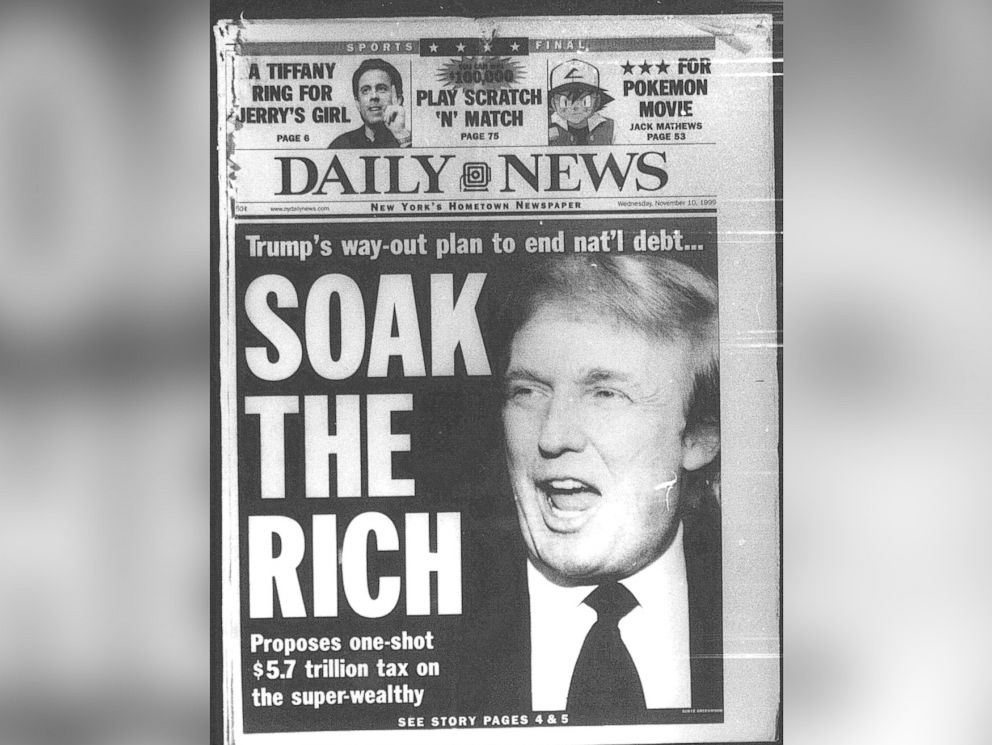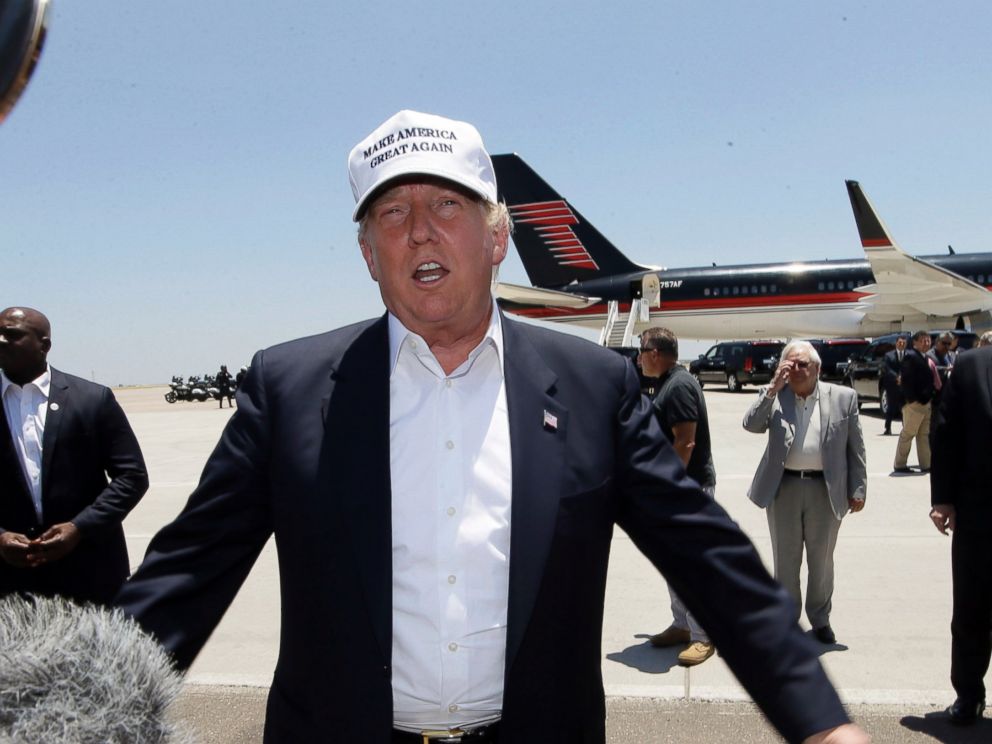
Donald Trump Once Proposed the Biggest Tax Hike Ever
Donald Trump takes a lot of flak for failing to offer specific policy proposals, but there was a time when he offered a very specific tax plan -- one that raised taxes on the wealthy so much it might have made Bernie Sanders blush.
In classic Trump fashion, the plan was big and bold. If enacted, Trump's plan would have been biggest tax hike, in total raw dollars, in history. In a word, it would have been huge.
The year was 1999 and Trump was toying with the idea of running for President as a third party candidate. The idea, which Trump says he no longer supports, was to impose a one-time tax of 14.25 percent on every American worth more than $10 million and raise exactly enough money to pay off the debt.
Trump himself would have had to pay more than $700 million. But he didn't care. He calculated his plan would erase the entire national debt and save the government millions in interest payments, allowing tax cuts for everybody else.
Here's how Trump described the plan on "Good Morning America" on Nov. 10, 1999:
"Well, basically, this would be a one-time tax, 14.25 percent against people with a net worth of over 10 million," Trump said. "It would pay off in its entirety the national debt of $5.7 trillion, and you'd save $200 billion a year. So taxes for the middle class would go way down, the estate and inheritance tax totally wiped out, and the Social Security system would be saved."
In a screaming front page headline that same day, the New York Daily News featured a photograph of Mr. Trump with the words, “SOAK THE RICH: Trump's way-out plan to end nat'l debt...Proposes one-shot $5.7 trillion tax on the super-wealthy.”
Trump also wrote about the plan in his 2000 book "The America We Deserve" as "bold, radical, realistic, and doable."
“Some will say that my plan is unfair to the extremely wealthy," Trump wrote. "I say it is only reasonable to shift the burden to those most able to pay.”
He portrayed tax hikes on the rich as a patriotic.
“Most of the truly wealthy people I know – and I know many – have doubled their net worth in the last few years," Trump wrote. "Yes, I believe we have an obligation to pay. Taxes represent the cost of freedom and its defense. It is a small price.”
In a precursor to the Occupy Wall Street movement, Trump argued that that soaking the Top 1 percent is only fair.
“The rich will scream," Trump wrote. "Only the top 1 percent of people – those with a net worth of $10 million or more – would be affected by my plan. The other 99 percent would get deep reductions in their federal income taxes.”

In the 1999 interview, Trump was asked about those who would not have the cash to pay the tax because their wealth is tied up in investments such as real estate or stocks.
"It's a very fair question and very good question that's been thought of in great detail. Some people would be able to sell things off, easily pay the tax," Trump said. "They sell off assets, you'd sell off assets."
Impractical? The former Labor Secretary Robert Reich, who is less than 5 feet tall, told "Good Morning America" immediately after Trump's 1999 interview that the plan would have as much as chance of passing Congress as he would getting recruited to play basketball for the New York Knicks.
Trump acknowledged it would be tough to pass -- for anybody except for him.
"If I were president, it would be passed. I think if somebody else is president, it probably can't be," he said in the "Good Morning America" interview. "This is a tax paid by 1 percent, but the 1 percent will be very big beneficiaries with what's going to happen and the positive forces that would take place in the economy."
During the course of several interviews on the plan, Trump added more details. The tax would be paid over time: the wealthy could pay the tax in installments over the course of 10 years, giving them time to sell off assets to pay the tax. With the money saved by eliminating interest payments on the debt, he would eliminate the estate tax and cut income taxes on everybody across-the-board.
In an interview on "Hardball" with Chris Matthews one week later, on Nov. 18, 1999, Trump predicted the plan would be a boon to everybody, especially those who paid the big tax.
"The economy would boom. We'd have no debt," Trump said. "Hey, I know about debt probably as much as anybody. I've had too much, and I've had too little. And you know what? Too little is much better, believe me."
A decade later, Trump backed away from his plan. In another "GMA" interview in 2011, he explained that the economy had changed, making the plan no longer viable.
"Well, at that time, it would have paid off the deficit. I mean, you wouldn't have a deficit at that time," he told George Stephanopoulos. "Unfortunately, the world has changed. Today, you can't do it. Today, and I'm very strongly against tax increases."
Most recently, Trump has said his plan was about paying "as little as possible" in taxes. In an interview with CBS News on Sunday, Trump said he "hates the way our government spends our taxes. I hate the way they waste our money. Trillions and trillions of dollars of waste and abuse."
Trump remains against tax increases, and his campaign promises more specifics on his tax plan soon.
ABC's Jordyn Phelps, Chris Donovan, Ben Siegel and Ali Weinberg contributed to this report.
No comments:
Post a Comment